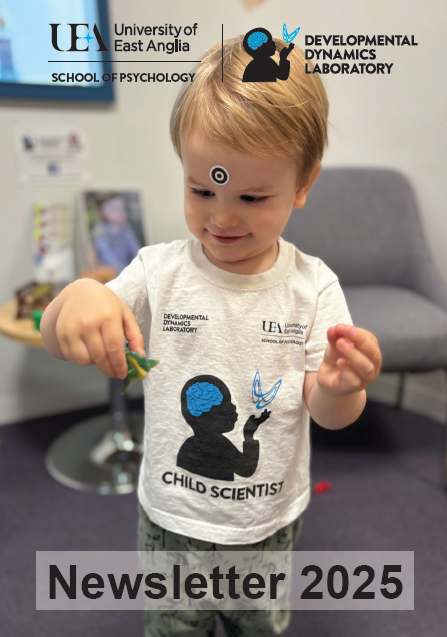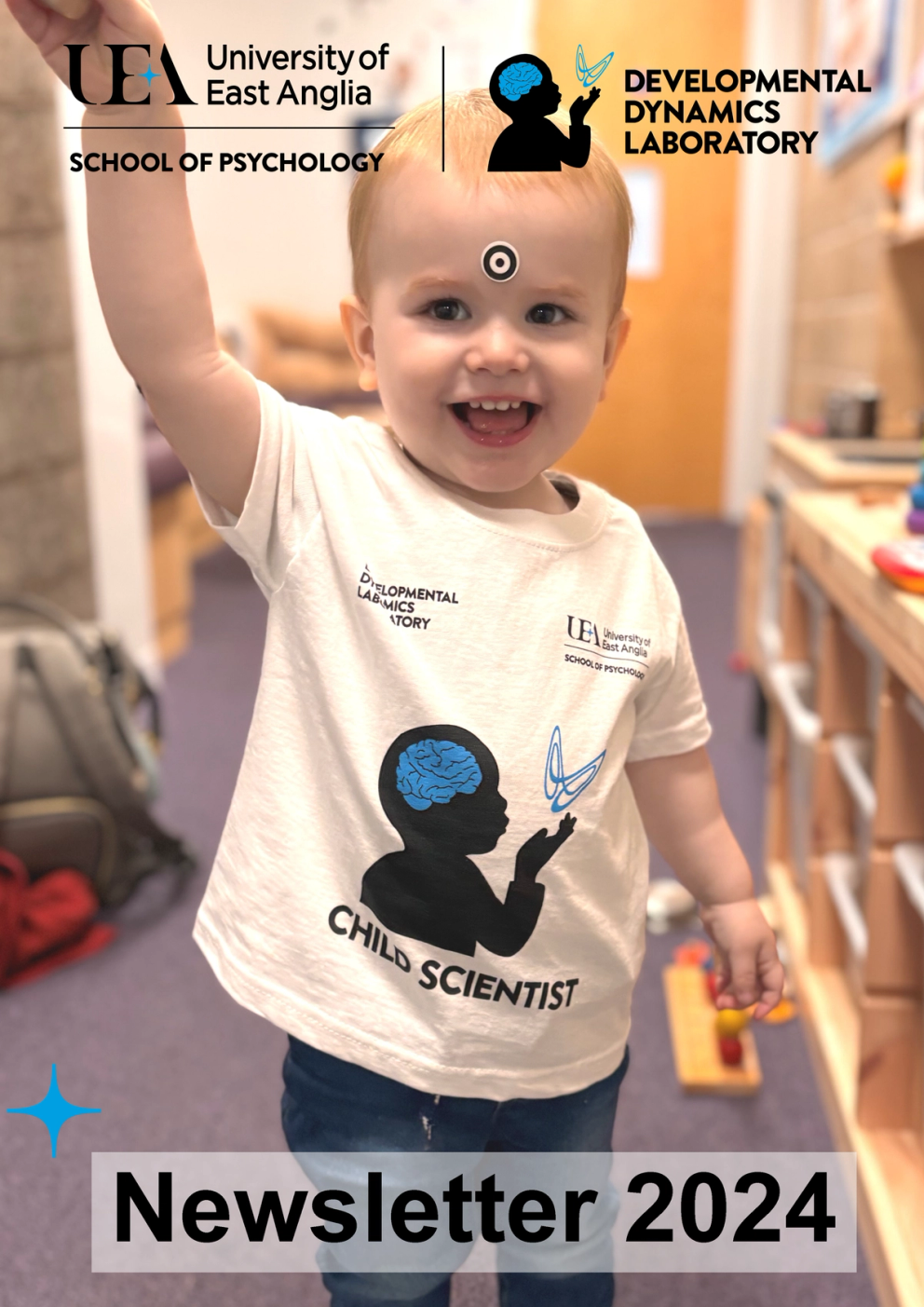News and Events
Latest News:
News Archive:
We are thrilled to share groundbreaking research from our DDLab led by Dr. Prerna Aneja and her team! Their latest paper, "Leveraging Technological Advances to Assess Dyadic Visual Cognition During Infancy in High- and Low-Resource Settings," explores how new technology is transforming our understanding of caregiver-infant interactions across different cultures.
What’s New? Dr. Aneja and her colleagues have utilised advanced machine learning algorithms to study how babies and their caregivers interact visually during play. This research spans two very different settings: urban areas in the UK and rural areas in India. Here’s what they discovered:
Key Findings:
Similarities: Infants in both the UK and India show similar attention patterns, especially during infant-led joint attention. For instance, when babies lead the interaction, they tend to focus on objects for longer periods compared to when they are either looking alone or when the caregiver is leading.
Differences: UK infants often take the lead in interactions, reflecting a more child-centered parenting style. In contrast, Indian infants exhibit different patterns influenced by local cultural practices.
Why It Matters: This innovative research uses advanced tools to streamline the analysis of caregiver-infant interactions, making it faster and more efficient. By eliminating the need for manual video coding, the team’s method allows for large-scale studies across diverse settings, including those with limited resources. This advancement opens up new research opportunities and enhances our understanding of how different environments and cultural practices influence early cognitive and social development.
Understanding these interaction patterns is crucial for developing better support systems for families and improving developmental outcomes for children globally. The insights gained from this study could lead to more tailored parenting advice and enhanced early childhood development practices around the world.
Thank you to all the families who have supported our research and contributed to these exciting discoveries!
You can read the full paper here.
New research by Professor John Spencer and colleagues out this week in Nature Human Behaviour showing brain and cognitive differences in infants with stunted growth. Our results reveal working memory differences as early as 6 months of age.
Link to article: https://rdcu.be/dpypD
Link to UEA announcement: https://www.uea.ac.uk/about/news/article/stunting-in-infancy-linked-to-differences-in-cognitive-and-brain-function
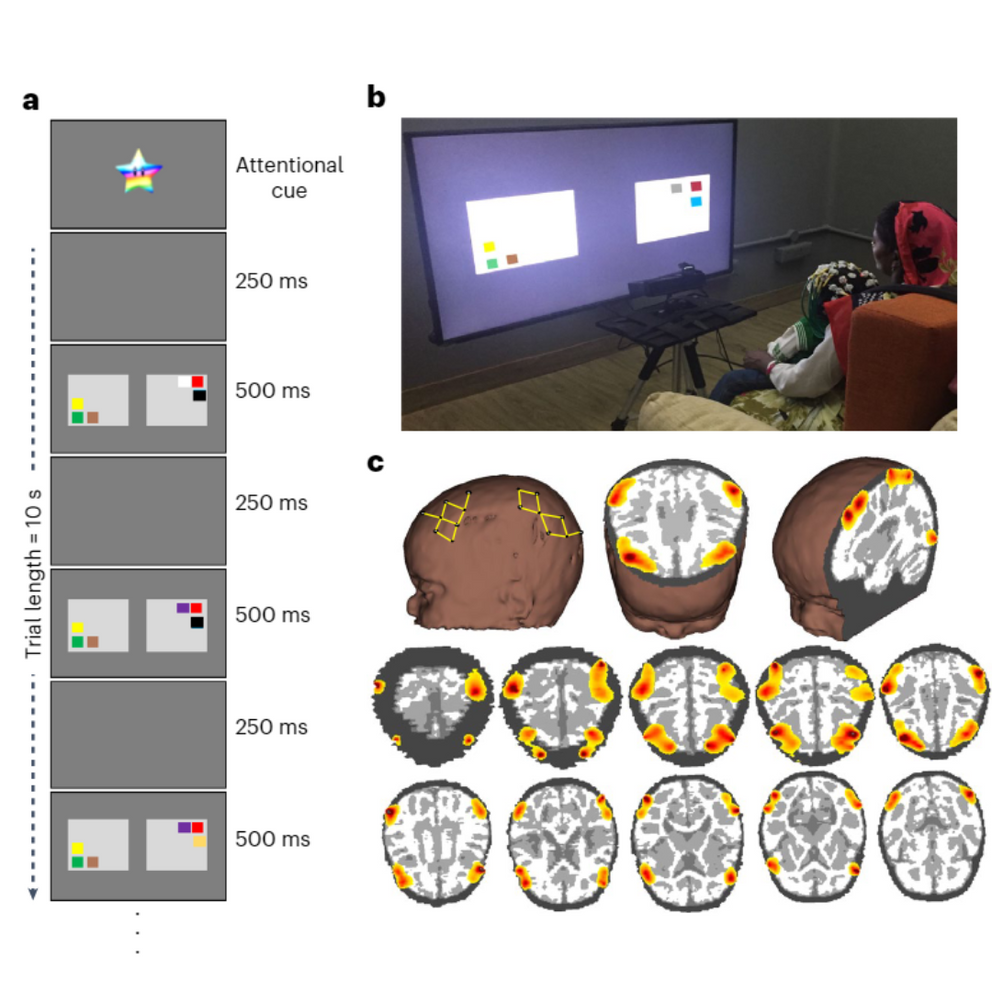
Read all our latest news in our annual newsletter here:
🌻CHILDREN'S SUNFLOWER COMPETITION🌻
Calling all budding gardeners! We’re excited to announce our sunflower growing competition for kids!
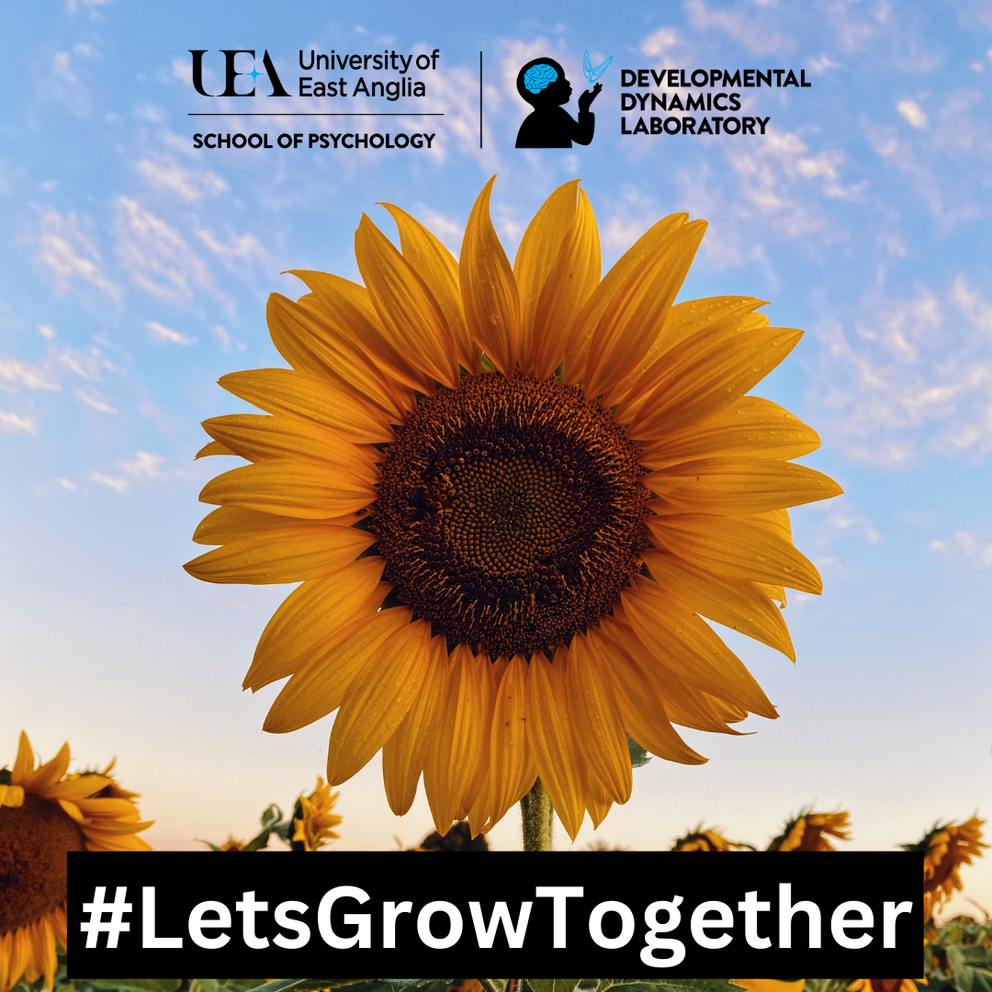
The sun will soon be out and it will be time to get planting! There will be prizes for:
🏆 Tallest Sunflower
🏆 Sunflower With The Most Flower Heads
🏆 Shortest/Smallest/Most Disastrous Sunflower
All you need to do is take a photo of your sunflower (with a tape measure) and tag us to enter the competition. 📷🌻 The competition ends on 31st August.
Sunflower seeds can be collected from the Lab. We would love it if you would share with us photos as your sunflowers grow 📷🌱
#LetsGrowTogether#ChildrensSunflowerCompetition #SummerFun #GardeningWithKids #FamilyFun
Competition Terms & Conditions: This competition is run by the UEA Developmental Dynamics Laboratory and is open to all children under 16. To enter you must send us a photo of your sunflower (including measurements) to be entered into the competition. We will only use contact details for the purpose of administering the competition unless you indicate otherwise. The closing date for entries is 11pm on 31st August 2023. Entries will be assessed and winners will be chosen on Monday 4th September 2023. Each winner will receive the bundle of prizes as advertised, no cash alternative can be substituted for the prize. Winners will be notified on our social media before 8th September 2023. If the winners do not respond to us within 14 days of being notified of the win then the winner’s prizes will be forfeited and we will be entitled to select another winner.
Professor John Spencer says "Our research shows that the amount you talk to your child early in development shapes the developing brain. In particular, 30-month-old toddlers who heard more adult language input had more myelin in language-related brain areas. Myelin insulates neural fibres, bringing more of the ‘signal’ from one brain area to the next. Thus, toddlers who heard more language input had a brain structure likely to support more sophisticated language processing. Although there is more to learn about these processes, the message to caregivers is clear: talk to your baby, your toddler, your child – not only are they listening, but your language input is literally shaping their brains."
Find out more: https://www.uea.ac.uk/news/-/article/how-talking-to-toddlers-boosts-early-brain-development
In the media:
https://www.theguardian.com/science/2023/may/15/talking-to-babies-may-help-shape-brain-structure-research-finds
https://www.independent.co.uk/news/science/john-spencer-university-of-east-anglia-b2338767.html
https://www.youtube.com/watch?v=sqIyqIGh_ho_ITVNews
https://theconversation.com/talking-to-babies-may-contribute-to-brain-development-heres-how-to-do-it-205692
Our PI, Professor Larissa Samuelson is giving a talk at the Max Planck Institute for Psycholinguistics on 25th April 2023. TOWARD UNDERSTANDING INDIVIDUAL VOCABULARY PATHWAYS: PROCESSES & PREDICTIONS IN A NEURAL PROCESS MODEL OF EARLY WORD LEARNING. The event is going to be in hybrid format so you can join the live videostream of the event. More info here: https://www.mpi.nl/events/mpi-colloquium-prof-larissa-k-samuelson
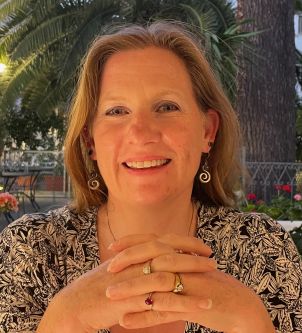
New research from Prof Larissa Samuelson and the UEA Developmental Dynamics Lab reveals why some children may be slower to learn words than others. Their findings could help "determine which children are at risk for language delay at an earlier stage".
Find out more: https://www.uea.ac.uk/news/-/article/research-shows-why-some-children-may-be-slower-to-learn-words
New research by Prof John Spencer shows that poor air quality could be causing cognitive deficits in babies and toddlers.
Find out more: https://www.uea.ac.uk/news/-/article/poor-air-quality-linked-to-cognitive-problems-in-babies
Norwich Science Festival Tuesday 14 February 2023
The team had a great time at this year's Norwich Science Festival 2023. Families took part in real psychology experiments, made their own visual illusions, made playdoh brains & battled it out on our Simon Says game!
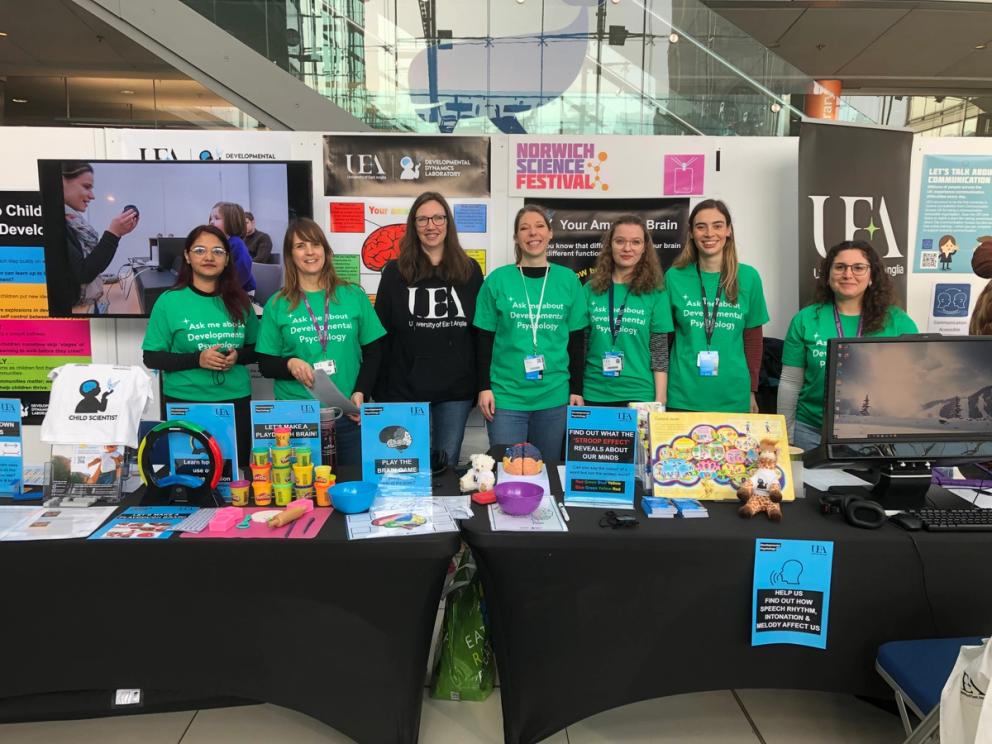
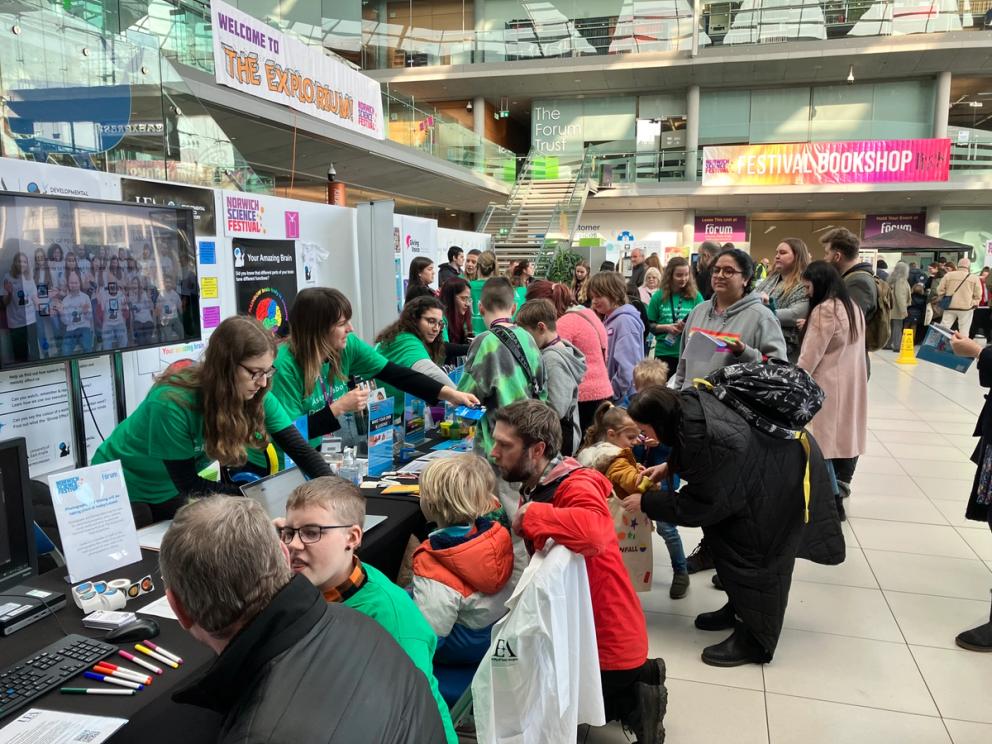
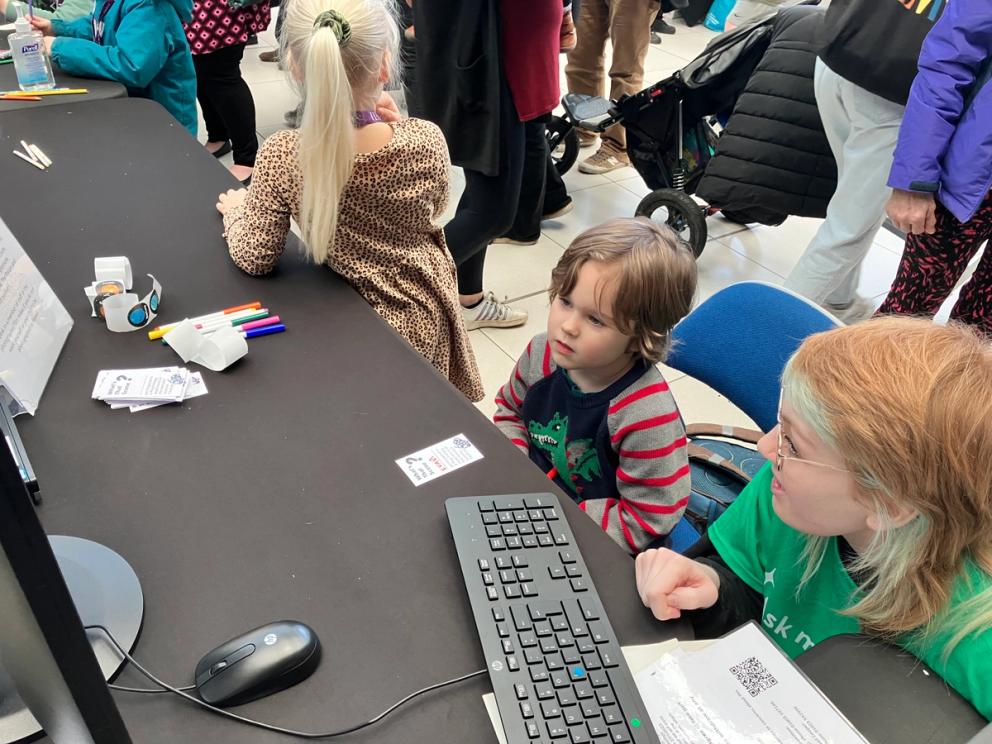
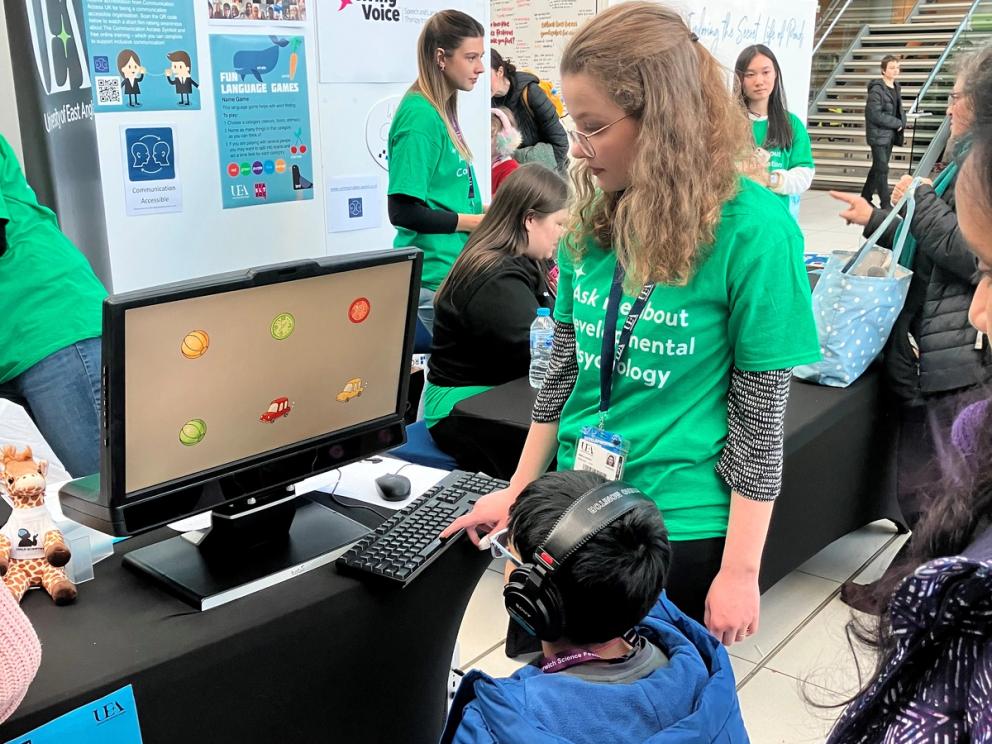
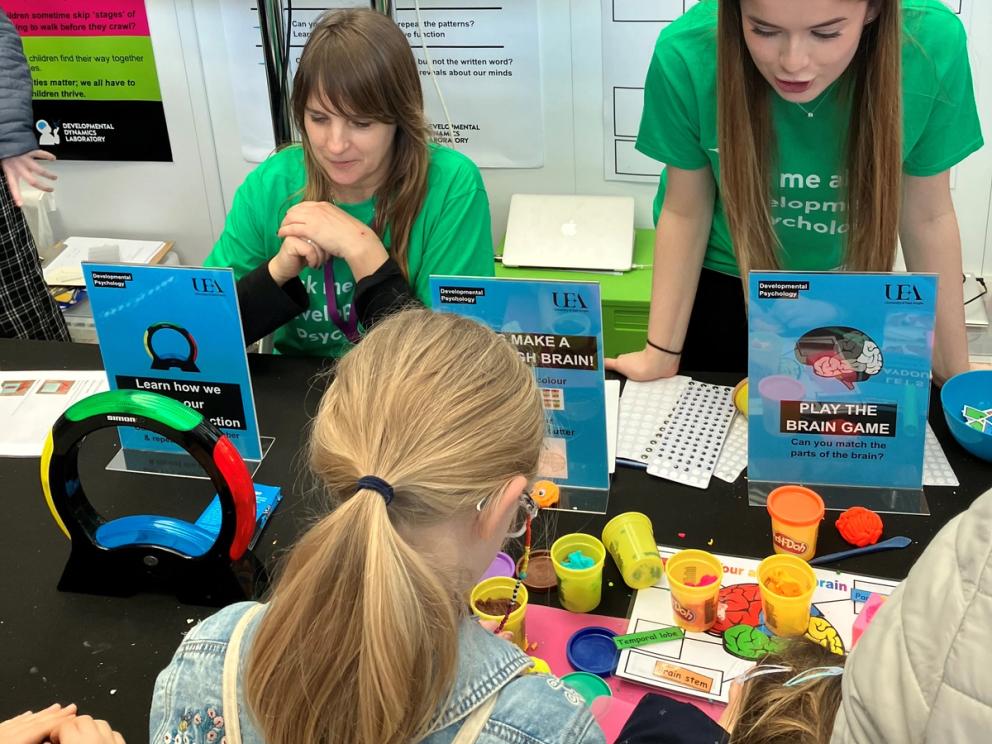
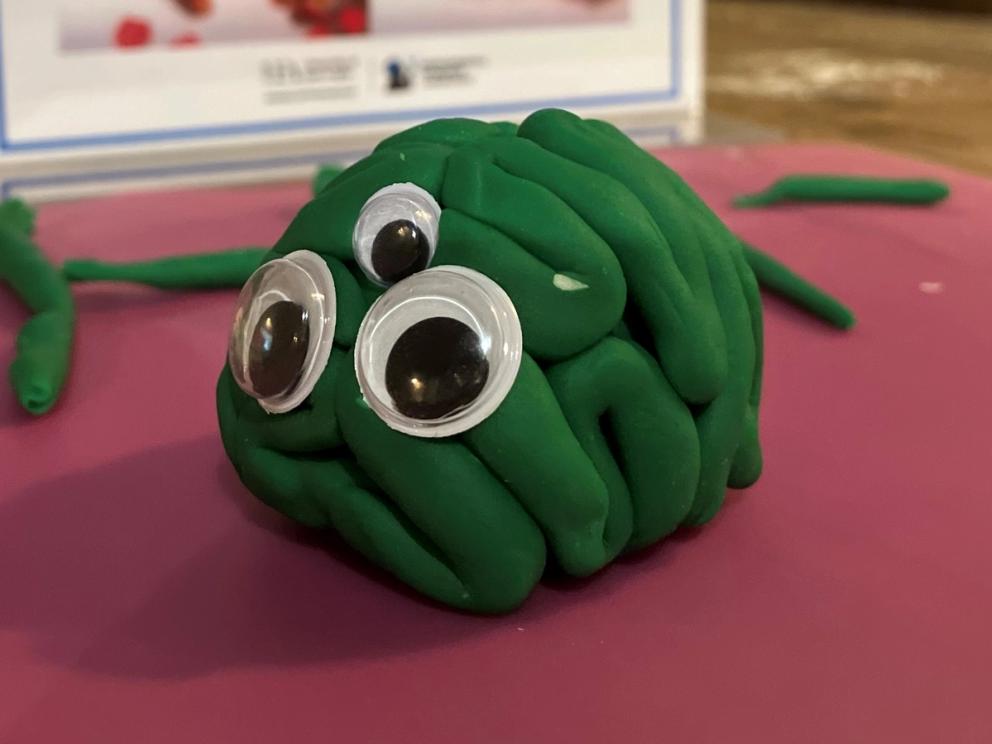
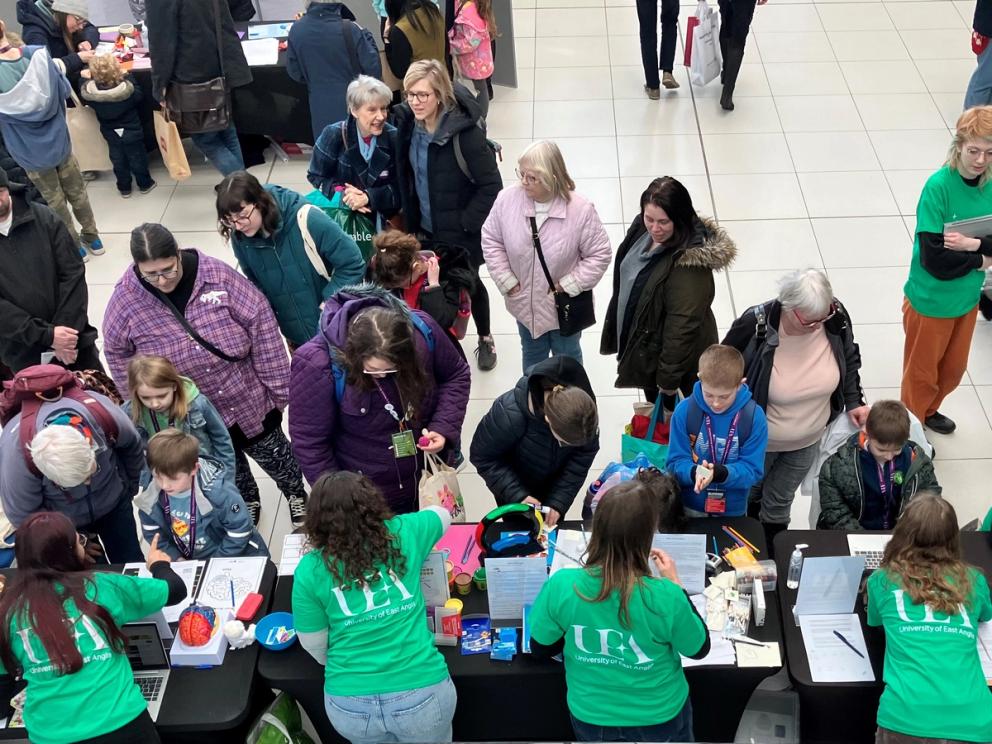
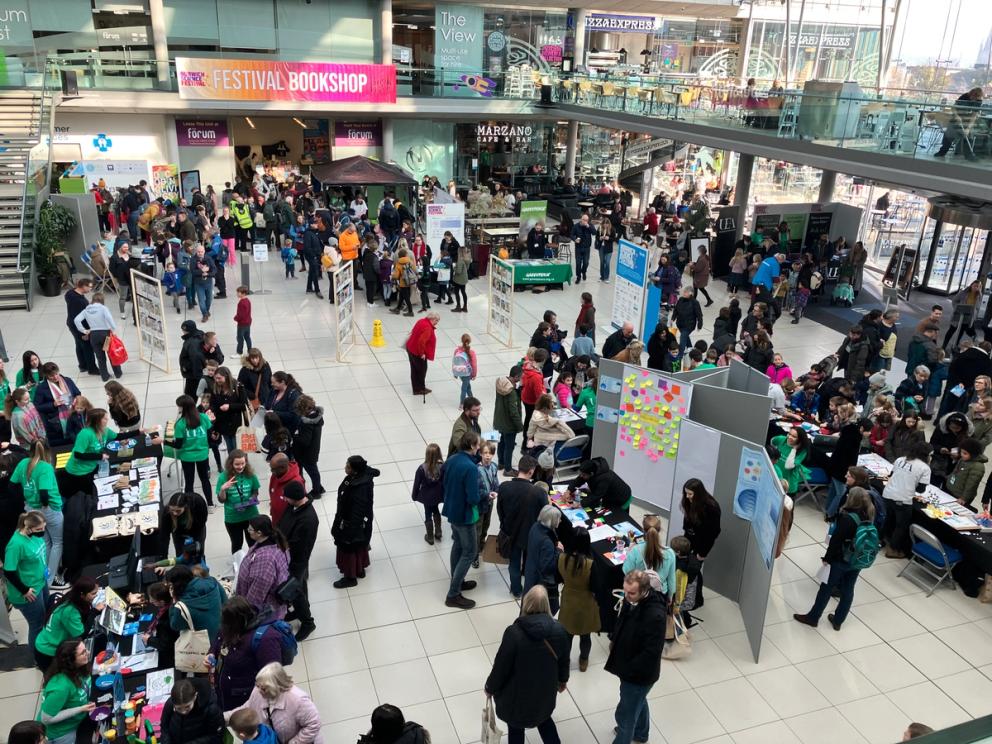
Read all our latest news in our annual newsletter here:
Read the latest update from the SNOOSE team researching baby sleep & sensory sensitivity
Some of our researchers presented at the recent International Congress of Infant Studies 2022 in Ottawa:
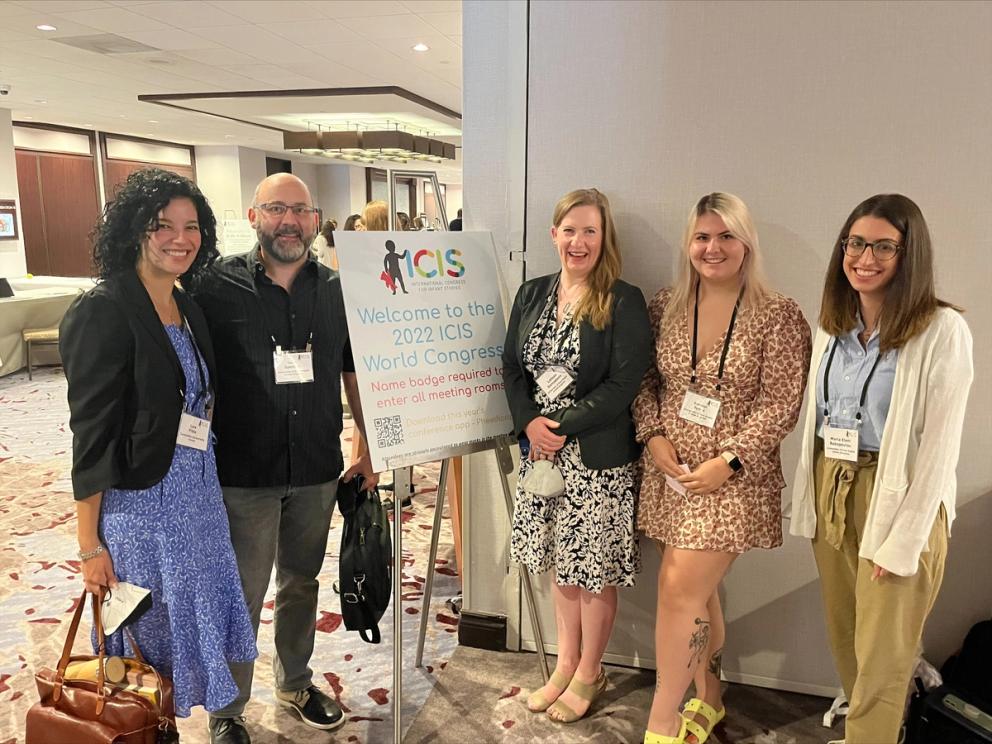
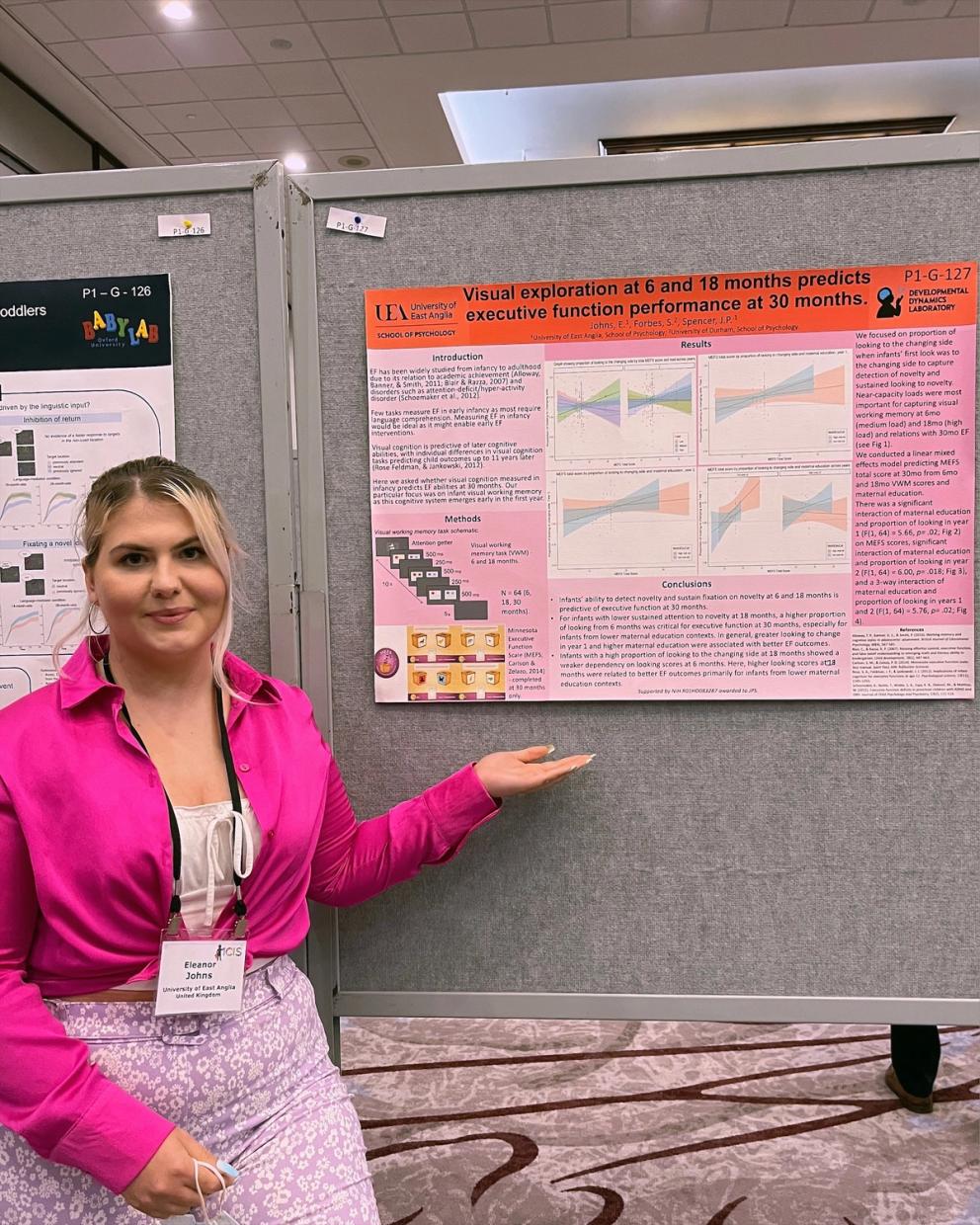
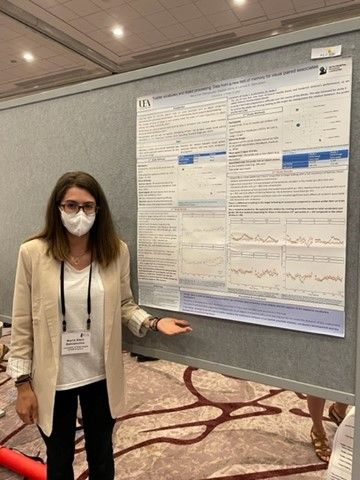
Professor Larissa Samuelson is giving a talk at Pint of Science on 9th May. Little words for little people: Knowing when they know. Infants and toddlers vary widely in their rate of early word learning – variation that is predictive of later language development and school success. In this talk, Prof Larissa Samuelson will discuss the difficulties children face when learning even a single concrete noun, and the work being done in UEA’s Developmental Dynamics Laboratory to understand individual children’s unique word learning pathways – work with the goal of informing interventions for children struggling to learn words. More info here https://pintofscience.co.uk/event/teach-em-young-speak-sleep-repeat
Professor John Spencer is giving a talk at Pint of Science on 11th May. How poverty impacts the developing brain…and what we might do to help. I will discuss recent evidence showing that poverty has a negative impact on brain development. Such impacts can be measured even in the first year of life. While poverty has consequences, I will also show data suggesting that the brain is incredibly flexible in early development, giving us hope that we can overcome these negative impacts with new intervention strategies. More info here https://pintofscience.co.uk/event/back-on-track-overcoming-challenges-to-the-brain
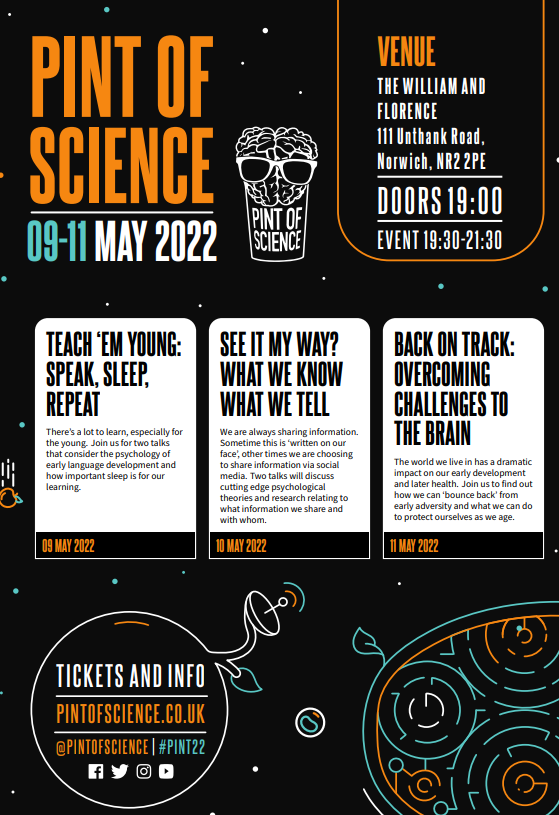
Read all our latest news in our annual newsletter and celebrate with us the completion of the UK Brain Study data collection.
In October 2021 Professor John Spencer presented at the Norwich Science Festival. His talk titled 'How does poverty impact on the developing brain?' discussed some of the initial findings from his large-scale brain studies examining the early development of visual working memory. The data suggests that we can track the impact of adversity on cognitive and brain development as early as six months of age, which opens the door to global efforts on early assessment and intervention. The full talk can be watched here
In July 2021 we celebrated the opening of our £3 million state-of-the-art neuroimaging research centre. Read more about it here
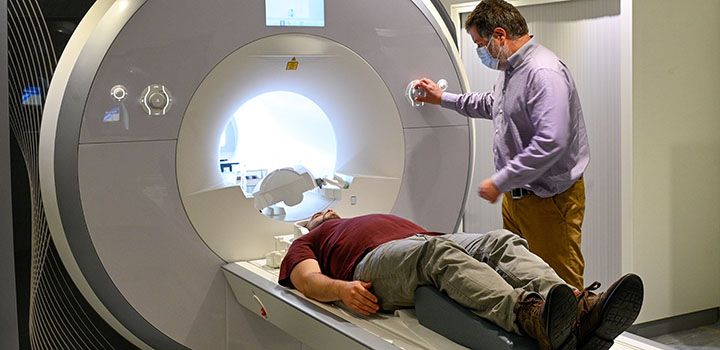
In April 2021 Professor Larissa Samuelson presented at the UEA London Lectures. Her talk titled 'How children learn words: Individual Differences and Common Processes' discussed the difficulties children have when learning even a single concrete noun. She explains the research being undertaken in the labs to understand individual children's unique learning pathways. The full talk can be watched here
Our annual newsletter brings you up-to-date with what has been happening in the labs over the last 12 months. Read about our studies and the progress we have made and how this is helping us to understand more about early child development.
Some of our researchers presented at the recent International Congress of Infant Studies:
Milena Bakapoulou presenting 'Visual Exploration in Novel Noun Generalisation Task' A window on the relationship between vocabulary and shape bias
Laia Fibla presenting Early Language Processing and Language Exposure Across Cultures: UK and India
Laia Fibla presenting her poster: The LENA system applied to the Awadhi dialect: Measuring language exposure in rural India
Prerna Aneja presenting Bringing Advanced Technology to Developing Countries to Asses Parent-Infant Interaction
ITV News came to visit us in June 2019 to find out more about what we do - watch here
Read more about when the EDP came to visit us here
In June 2019 we held a celebratory picnic at the UEA for all our families enrolled on our 5 year 'Brain Study' looking at working memory and early brain development. We are also running a companion study in Uttar Pradesh, India to examine how early adversity including poverty and under-nutrition impacts working memory. Altogether, across the two projects, we are studying over 400 families worldwide!
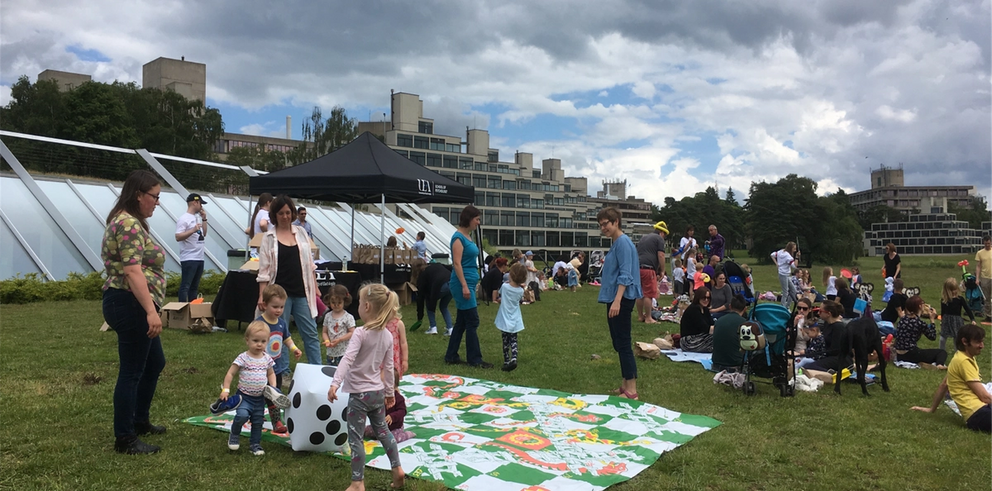
Our Events:
We’re going to be at Norfolk's Biggest Baby Fair, The Norfolk Bump & Beyond Baby and Toddler Fair on Sunday 17th March 2024. Join us from 10am until 3pm at Norfolk Showground where we look forward to chatting to #norwichbumps #norfolkbumps #norfolkbabies and #newmummas about our research and how you can get involved.
The team had a brilliant time at this year's Norwich Science Festival 2024. Families took part in real psychology experiments, made their own visual illusions, made playdoh brains & battled it out on our Simon Says game!
Come and see us at Cadge Road Community Centre Fun Day today 10-2pm. We have lots of fun activities:
🌻 plant your own sunflower
👀 make your own visual illusions
🧠 make a playdoh brain
📚 enter our prize draw to win a bundle of children’s books

We’re going to be at Norfolk's Biggest Baby Fair, The Norfolk Bump & Beyond Baby and Toddler Fair on Sunday 12th March 2023. Join us from 10am until 3pm at Norfolk Showground where we look forward to chatting to #norwichbumps #norfolkbumps #norfolkbabies and #newmummas about our research and how you can get involved.
The team had a great time at this year's Norwich Science Festival 2023. Families took part in real psychology experiments, made their own visual illusions, made playdoh brains & battled it out on our Simon Says game!







We’re going to be at Norfolk's Biggest Baby Fair, The Norfolk Bump & Beyond Baby and Toddler Fair on Sunday 20th March 2022. Join us from 10am until 3pm at Norfolk Showground where we look forward to chatting to #norwichbumps #norfolkbumps #norfolkbabies and #newmummas about our research and how you can get involved.
Join us at this year's Festival - we will be demonstrating some cool technology and talking all things developmental psychology.
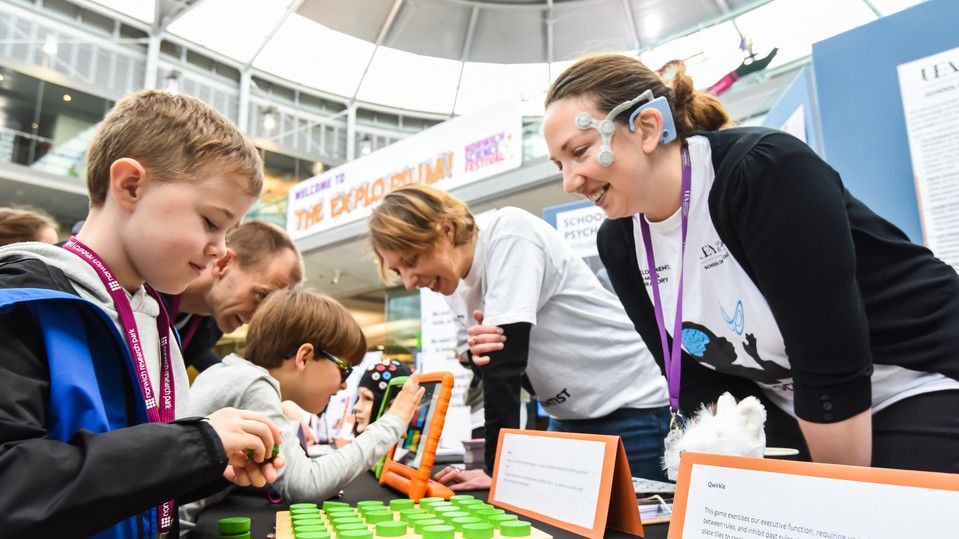
If you missed us at this year's Fair then why not pencil in the date for next year's Fair - Norfolk Showground on Sunday 20th March 2022 10am until 3pm. For more information visit Bump & Beyond

